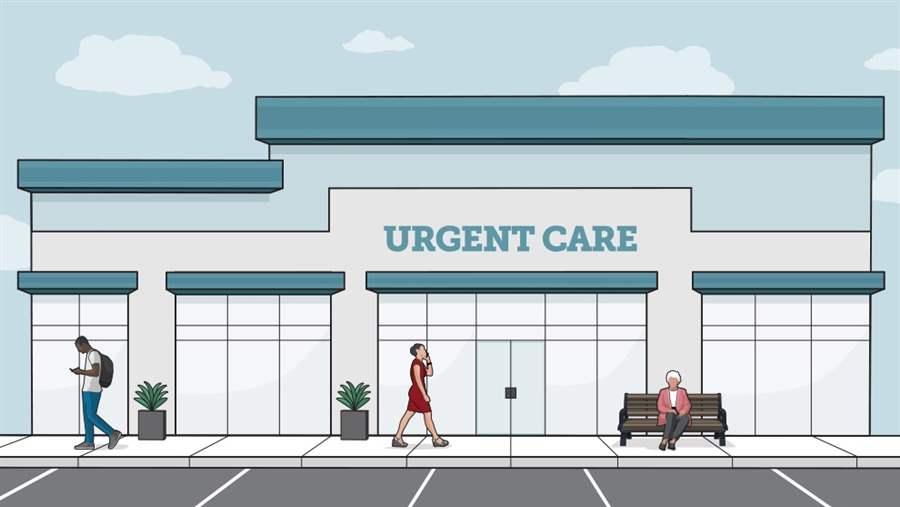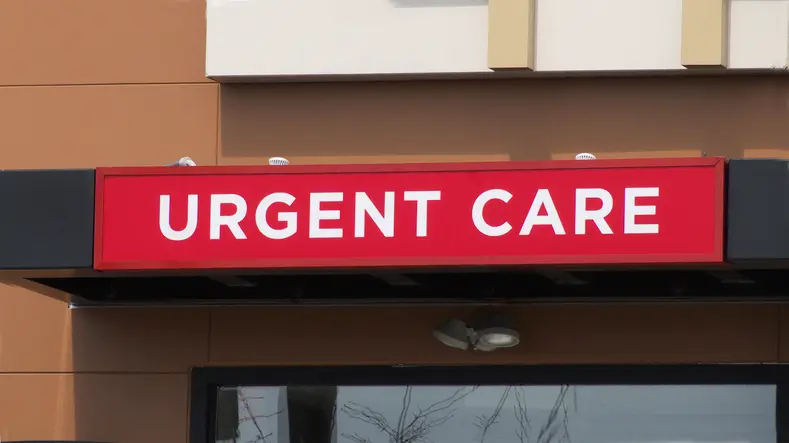Recognizing When to Check Out Urgent Care for Non-Emergency Wellness Issues
Recognizing When to Check Out Urgent Care for Non-Emergency Wellness Issues
Blog Article
Understanding the Value of Urgent Treatment Providers for Non-Life-Threatening Medical Issues
The significance of immediate treatment solutions for non-life-threatening clinical issues can not be overstated, especially in today's health care landscape. These facilities offer a vital alternative for patients seeking timely focus for problems that need instant treatment however do not warrant a check out to the emergency clinic. By comprehending the advantages of immediate treatment, such as decreased delay times and cost efficiency, one can much better appreciate their duty in individual wellness administration. The nuances of just how to browse these services successfully remain to be discovered, elevating questions concerning their optimal utilization.
What Is Urgent Treatment?
Urgent care describes a classification of clinical solutions created to resolve non-life-threatening problems that require instant focus yet do not necessitate a see to the emergency clinic. These facilities give a bridge in between main care and emergency situation services, offering accessible healthcare alternatives for individuals experiencing acute clinical concerns, such as minor cracks, strains, infections, or serious diseases that develop all of a sudden.

The scope of solutions supplied by immediate care centers can vary however generally consists of therapy for typical conditions like colds, influenza, and allergic reactions, in addition to minor injuries (urgent care). Furthermore, many immediate care centers use preventative solutions, such as inoculations and physical examinations, to resolve wider health needs. By using a convenient alternative for urgent medical problems, these centers play a critical function in the health care continuum, making certain that clients receive appropriate care when they need it most
Benefits of Urgent Care Services
Lots of individuals locate that utilizing immediate care solutions gives substantial benefits over conventional emergency space check outs or waiting for a health care appointment. One primary benefit is the lowered delay times. Immediate care centers usually have shorter delay periods, allowing clients to receive timely clinical interest when they need it most. This expedited care is specifically valuable for non-life-threatening conditions that require prompt treatment.
An additional advantage is the extensive hours of operation. Lots of urgent treatment centers are open nights and weekends, accommodating people that might not be able to see their health care physician throughout routine workplace hours. This flexibility makes it less complicated for patients to gain access to treatment at their comfort.
In addition, immediate care solutions typically provide an economical alternative to emergency clinic. Individuals frequently encounter lower co-pays and overall expenses when looking for therapy for small conditions at urgent care centers instead of hospital emergency departments.
Lastly, urgent treatment centers are geared up to manage a variety of non-life-threatening issues, giving a wide array of services under one roofing. This comprehensive strategy not only streamlines the therapy process but also boosts patient complete satisfaction by providing efficient and punctual treatment.
Usual Conditions Dealt With
What kinds of non-life-threatening conditions can people expect to receive treatment for at immediate care? Immediate care facilities are outfitted to take care of a wide selection of common clinical concerns that call for timely focus yet do not posture an immediate danger to life. These centers generally treat conditions such as minor cracks, sprains, and pressures, giving vital treatment for injuries that occur during everyday tasks or sports.
In addition, people frequently seek therapy for breathing infections, consisting of colds, influenza, and respiratory disease, where prompt intervention can minimize symptoms and protect against complications. Skin disease such as rashes, insect bites, and minor burns are also typically dealt with, as timely treatment can mitigate pain and reduce the threat of infection.

Comparing Urgent Care and Emergency Clinic

One considerable difference waits times; immediate care centers typically have shorter delay times compared to emergency clinic, which can be crowded with more crucial instances. This performance permits individuals to obtain timely treatment for their disorders.
From a monetary viewpoint, urgent care brows through often tend to be more economical than emergency clinic visits. Insurance policy copays and out-of-pocket costs are commonly lower at immediate care facilities, making them a more affordable option for non-emergency scenarios.
Just How to Choose an Urgent Treatment Center
Selecting the ideal urgent care center can dramatically enhance the top quality of care received throughout a non-life-threatening clinical concern. When selecting an urgent treatment center, numerous essential factors ought to be thought about.
First, assess the facility's accreditation and licensing. Look for facilities that are accredited Homepage by acknowledged organizations, as this shows adherence to quality requirements. Next off, review the series of solutions used. Some urgent treatment centers concentrate on details areas, while others supply extensive take care of different medical issues.
In addition, consider the area and hours of procedure. An easily located facility with prolonged hours can be essential for timely treatment. It's additionally suggested to check the center's wait times and patient testimonials, which can give understandings right into the general person experience.
Conclusion
In verdict, urgent treatment services play an essential role in dealing with non-life-threatening medical concerns effectively. Inevitably, comprehending the relevance of urgent treatment centers contributes to improved health care management and person contentment.
Several individuals look at this now discover that making use of urgent care services gives considerable advantages over standard emergency situation area visits or waiting for a main treatment appointment. Several urgent treatment facilities are open evenings and weekends, suiting individuals who may not be able to see their primary care physician during normal office hours. Immediate treatment facilities are developed to deal with non-life-threatening conditions, such as small cracks, infections, and health problems, supplying a convenient alternative to emergency situation rooms for those in requirement of immediate treatment. Some immediate care facilities specialize in details areas, while others give extensive care for numerous medical problems.
Report this page